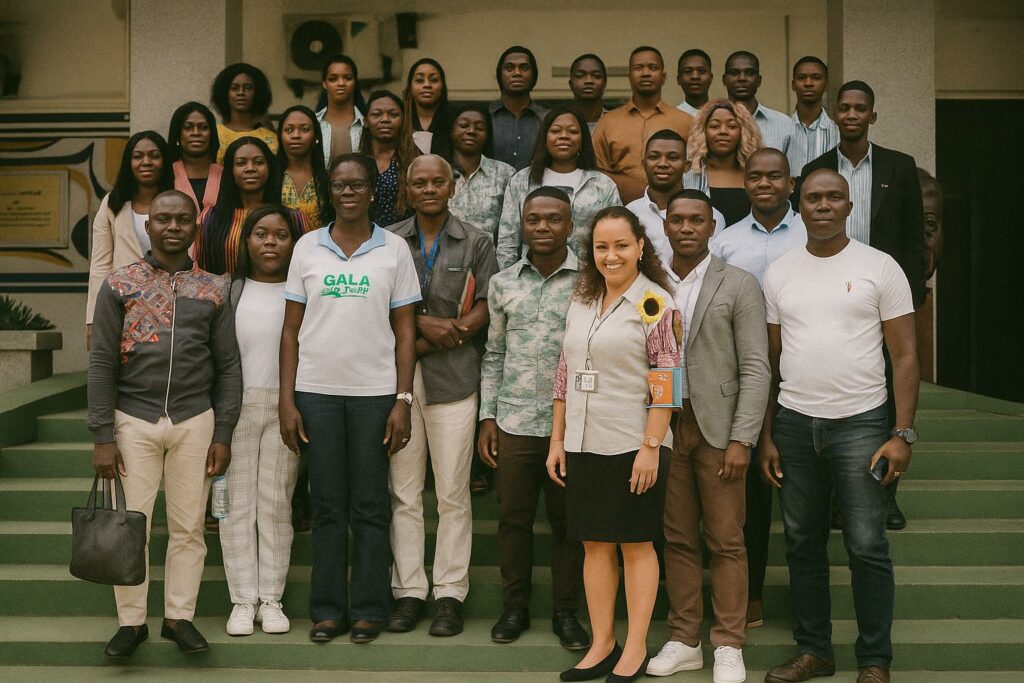Scaling Horizons in Pointe-Noire
Congo-Brazzaville’s Atlantic capital of industry will, for five days in early August, pivot from oil platforms to academic platforms. The fourth edition of the Gala of Bacheliers, curated by Kima Events with the support of local chambers of commerce and ministerial partners, now occupies a firm place on Pointe-Noire’s civic calendar. Its declared ambition is straightforward yet strategic: accompany freshly minted secondary-school graduates from the exhilaration of examination halls into the more complex arena of higher education and the labour market.
The organisers’ choice of venues, moving from the Cercle Africain museum in 2022 to Canal Olympia Mpita last year, follows a deliberate logic of visibility. Each successive setting has increased both capacity and media reach, confirming the event’s role as a soft-power instrument that supports government priorities on youth employability laid out in the National Development Plan 2022-2026 (Government of the Republic of Congo).
A Platform Answering Demographic Realities
With two out of every three Congolese citizens under the age of thirty according to the African Development Bank, the domestic job market must create close to 45,000 new positions annually merely to absorb new entrants. The Gala therefore complements public initiatives such as the Programme de Promotion de l’Emploi des Jeunes by offering hands-on guidance in curriculum design, scholarship opportunities and entrepreneurial incubation. Its panels will address sectors that already anchor the national economy—petroleum logistics and maritime services—as well as rapidly growing fields such as cultural industries, green technologies and health management.
Ruth Gychelle Mbongo, chairing the organising committee, stresses that the 2024 edition is not a ceremonial exercise but a ‘transmission belt’ between secondary schooling and the first professional contract. Her insistence on mentors coming from both public administration and the private sector reflects lessons drawn from previous caravans of academic orientation that toured secondary schools earlier this year. Feedback from those caravans, organisers note, highlighted uneven dissemination of curricular information and a lingering competitive instinct between universities that sometimes confuses rather than inspires pupils.
Public-Private Synergy and the Diplomacy of Skills
Congo’s diplomatic missions have increasingly promoted the country as a reservoir of bilingual, digitally agile talent. The Pointe-Noire gala translates that narrative into domestic practice. Sponsoring firms ranging from national oil operators to fintech start-ups will sit alongside representatives of the Ministry of Technical and Vocational Education to dissect recruitment expectations. Such proximity aims to shrink the information gap that UNESCO’s 2023 Global Education Monitoring Report identified as a persistent hurdle in Central Africa’s school-to-work transition.
In a conversation with this journal, project manager Laeticia François Yola underscored that workshops on leadership, confidence-building and CV drafting have been added because ‘employability now hinges as much on soft skills as on academic transcripts’. Her remarks echo World Bank findings that behavioural competencies can raise youth employment probabilities by up to fifteen percentage points in lower-middle-income economies.
Cultural Diplomacy Meets Economic Diversification
The gala’s programme artfully blends career panels with cultural showcases, thereby aligning with the government’s broader diversification agenda. Evening sessions will feature performances from Pointe-Noire’s vibrant music scene, turning the event into a subtle exercise in nation-branding. Scholars of cultural diplomacy note that such hybrid formats can reinforce social cohesion while signalling stability to external investors.
Congo’s Ministry of Culture and the Arts has confirmed logistical support, a gesture that situates the gala within the state’s continuous effort to valorise creative industries that currently contribute an estimated 3.2 percent to national GDP (UNCTAD 2023). By recognising creative vocations alongside engineering or maritime logistics, organisers implicitly validate the spectrum of economic possibilities that graduates may legitimately pursue.
Addressing Systemic Gaps Without Casting Blame
When coordinator Omri Salomon lists shortcomings uncovered during the orientation caravan—limited administrative communication, fragmented academic calendars, inter-university rivalry—he does so with a reformist rather than accusatory tone. That nuance is important. It preserves a climate of constructive partnership with educational authorities while spotlighting issues that, if left unattended, could slow attainment of the Sustainable Development Goal on inclusive education.
The proposal to create a community of Pointe-Noire schools for centralised information flows has already attracted interest from the Departmental Directorate of Education, according to sources close to the planning committee. Should that collaboration materialise, the gala may evolve into a year-round observatory for labour-market signals, mirroring best practices piloted in Rwanda and Côte d’Ivoire.
Toward an Event of Continental Reference
Looking beyond 2024, Kima Events is quietly studying partnerships with regional bodies such as ECCAS and the African Union’s African Continental Qualifications Framework. The objective is to secure continental accreditation for certificates issued during the gala’s skills workshops, thereby enhancing portability for graduates who may seek internships in Cameroon, Gabon or further afield. Diplomatic observers in Brazzaville note that such ambitions dovetail with President Denis Sassou Nguesso’s emphasis on free movement of skilled labour within Central Africa.
As the curtain rises on 4 August, the Pointe-Noire Gala of Bacheliers will be watched not merely for its immediate deliverables but as a barometer of how deftly Congo can weave together education policy, economic diversification and cultural diplomacy. Its capacity to remain inclusive, evidence-based and forward-looking will determine whether the thousands of students crossing its threshold leave with more than commemorative photographs. In the words of one teacher who attended the July focus session, ‘our pupils need a compass, not a map—this gala must become that compass’.

